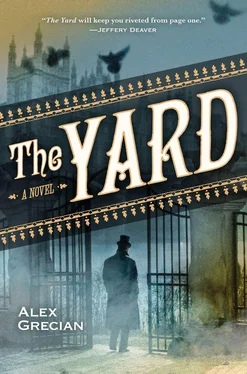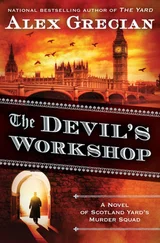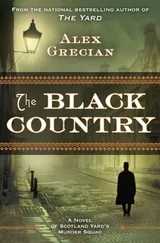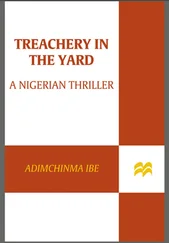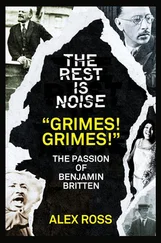Alex Grecian - The Yard
Здесь есть возможность читать онлайн «Alex Grecian - The Yard» весь текст электронной книги совершенно бесплатно (целиком полную версию без сокращений). В некоторых случаях можно слушать аудио, скачать через торрент в формате fb2 и присутствует краткое содержание. Год выпуска: 2012, Издательство: Penguin Group, Inc., Жанр: Исторический детектив, на английском языке. Описание произведения, (предисловие) а так же отзывы посетителей доступны на портале библиотеки ЛибКат.
- Название:The Yard
- Автор:
- Издательство:Penguin Group, Inc.
- Жанр:
- Год:2012
- ISBN:нет данных
- Рейтинг книги:5 / 5. Голосов: 1
-
Избранное:Добавить в избранное
- Отзывы:
-
Ваша оценка:
- 100
- 1
- 2
- 3
- 4
- 5
The Yard: краткое содержание, описание и аннотация
Предлагаем к чтению аннотацию, описание, краткое содержание или предисловие (зависит от того, что написал сам автор книги «The Yard»). Если вы не нашли необходимую информацию о книге — напишите в комментариях, мы постараемся отыскать её.
The Yard — читать онлайн бесплатно полную книгу (весь текст) целиком
Ниже представлен текст книги, разбитый по страницам. Система сохранения места последней прочитанной страницы, позволяет с удобством читать онлайн бесплатно книгу «The Yard», без необходимости каждый раз заново искать на чём Вы остановились. Поставьте закладку, и сможете в любой момент перейти на страницу, на которой закончили чтение.
Интервал:
Закладка:
“Because he’s bald. Didn’t you know?”
95
But why come to the Yard looking for you?” Kingsley said. “Why follow you to Hobgate?”
“I don’t know,” Day said. “Perhaps he was checking on my progress, worried that we might break the case and catch him.”
“Or perhaps you were his next intended victim.”
Day nodded, but didn’t say anything. The thought had occurred to him and he preferred not to dwell on it.
“I nearly forgot,” Day said. “I found these in one of the rooms.”
He produced his handkerchief and unwrapped the pair of shears from the workhouse.
“They appear to be an identical match to the first pair,” Kingsley said. “Two pairs of shears. A tailor indeed. May I keep these?”
“Of course. I’d hoped you could tell me something about them when you have a chance to return to your laboratory. You know, if he’d only kept to himself, we might never have found him, but the fool keeps throwing evidence at us.”
“You’d have found him regardless.”
“Perhaps. He might’ve removed his mark from inside his hat. That would have slowed our progress by at least a few minutes.”
“Detective work is more than the accumulation of evidence. Your instincts are good.”
“Thank you. Sir Edward said something similar not long ago.”
Kingsley nodded. “His instincts seem solid as well.”
“Thank you for not leaving me there,” Henry Mayhew said.
“Of course,” Kingsley said. He deposited the shears in his black bag and turned in his seat so he could see Henry more easily. “I could hardly leave my new assistant at the workhouse.”
“I wish this carriage would hurry,” Day said.
As he spoke, the carriage ground to an abrupt halt. Kingsley peered out through the curtains.
“I believe this is the place,” he said.
The three of them alighted from the police wagon and Day took a moment to instruct the driver. Then he held up a hand to stop Kingsley, who had stepped up to the door of the little shop.
“You wait here,” Day said. “If he’s come back, there may be danger.”
Kingsley nodded and backed up. He waited in the dancing man’s shadow as Day tried the door. It swung open easily. A white cat darted out, skirted a puddle, and disappeared around the corner. Day raised his eyebrows and entered the shop, his Colt drawn and ready.
Inside, the room was dim and cluttered. Clearly someone had ransacked the shop, tipping mannequins over and pulling drawers out onto the floor. Day moved quickly and quietly through the place. When he was sure there was nobody else there, he put his weapon away and opened the front door again, beckoning Kingsley in. Henry followed his new employer.
Kingsley took a deep breath and set his black bag on the main counter, next to a sewing machine that had a length of fabric tied around its base. From the bag he drew the pair of bloody shears.
“Shall we see if there are finger marks on these?”
“Did you bring your powder?”
“I did.”
With a flourish, Kingsley produced the little tin of charcoal dust. He opened it and blew a pinch of the black powder on the sewing machine.
“Look at this,” he said. “Several marks on this machine, clear as day. If there are marks on these shears we’ll know for certain whether this tailor was the man following you and whether he stabbed that man at the workhouse.”
“It won’t prove he killed Little.”
“No, but if we compare these shears to the pair used on Pringle and then compare them to the marks here on this sewing machine … well, if they all match, I think we’d be reasonably safe in pinning the blame on this fellow. What’s his name again?”
“Cinderhouse. The marks of his fingertips still won’t be enough to convict him.”
“Perhaps not, but they’ll be enough to convince you of his guilt, and with your case narrowed in so precisely, you’ll find the proof you need.”
Day smiled. “That I will.”
Kingsley went about the task of comparing finger marks, humming quietly under his breath while Day poked about the shop, looking for anything that might be construed as evidence of a crime. Henry Mayhew bobbed about in a corner of the shop, dancing to the tune Kingsley hummed.
“Detective,” Kingsley said.
Day looked up from a red smear he had found along a crack in the floorboards.
“This sewing machine,” Kingsley said. “It appears to be moving.”
Day trotted over to the counter. The machine, though bolted to the countertop, was rocking back and forth, almost imperceptibly, as if being tugged by something. Day followed the length of fabric tied around its base. The makeshift rope was pulled taut across the counter and ran down into a cupboard on the other side. In the base of the cupboard, there was a square hole. The fabric disappeared into the darkness below the shop. Day squatted outside the cabinet. He drew his gun again and shouted.
“Hullo! Is someone down there?”
After a moment, an answer echoed up and into the cupboard.
“Who’s that?” the voice said. “I warn you, I’m armed.”
Day frowned. “Hammersmith?” he said. “Is that you, man?”
96
Blacker followed Penelope Shaw through the foyer and into a well-appointed parlor. He whistled.
“Lovely.”
He meant that the lady herself was lovely. He had never seen such a creature in his life. He had seen her only briefly in hospital, where her husband had died, and her face had been red and puffy from crying. Even then she had been breathtaking. Her scent filled the room and he felt light-headed. No wonder Hammersmith had been so eager to spend time in her company. He would need to focus on the task at hand. He reminded himself that the most beautiful women were often the most dangerous.
“I mean your home,” he said. “You have a lovely home.”
“Thank you,” Penelope said. “My son, Bradley, and I are happy here. Would you care for tea?”
“Oh, good Lord, no!”
“Well, all right.” She looked hurt.
“I’m sorry,” Blacker said. “That was a bit emphatic of me, wasn’t it?”
“Yes, a bit. I take it you’ve spoken with Mr Hammersmith.”
“I do apologize.”
“No, it’s perfectly understandable. I made a horrible mistake with him. I should never have-”
“Think nothing of it. Water under the bridge and all that.”
Blacker was mortally embarrassed for having made things so awkward between them. He had no idea how to bridge the silence, and so decided he would take his leave and return another time.
“Well,” he said, “I’m sorry to have disturbed you today. Perhaps I could-”
“Mother?”
Blacker turned to see a young boy standing under an arch by the staircase.
“Oh, I’m sorry, Mother. I didn’t know you had company.”
The boy was perhaps five years old, and his tiny pointed face was creased with worry. He looked as if he’d always been worried. Blacker was glad of the distraction. He smiled and waved him over.
“Not at all,” Blacker said. “Come here, lad.”
The boy glanced at his mother and dragged himself over to them.
“What is it, Bradley?” Penelope said.
“It’s raining and I can’t go outside today. I thought perhaps we might play a game of draughts.”
“You always beat me.”
“I won’t beat you this time.”
“Maybe when I’ve finished with Mr Blacker.”
“Call me Michael,” Blacker said. “And your name is Hasenpfeffer, correct?”
“No. It’s Bradley.”
“That’s an extremely silly name.”
“Is not. It’s quite common.”
“It’s silly and I should know because I collect silly names.”
Читать дальшеИнтервал:
Закладка:
Похожие книги на «The Yard»
Представляем Вашему вниманию похожие книги на «The Yard» списком для выбора. Мы отобрали схожую по названию и смыслу литературу в надежде предоставить читателям больше вариантов отыскать новые, интересные, ещё непрочитанные произведения.
Обсуждение, отзывы о книге «The Yard» и просто собственные мнения читателей. Оставьте ваши комментарии, напишите, что Вы думаете о произведении, его смысле или главных героях. Укажите что конкретно понравилось, а что нет, и почему Вы так считаете.
